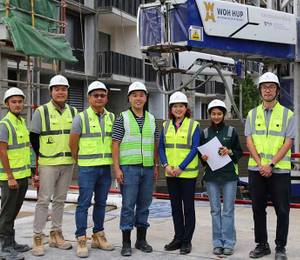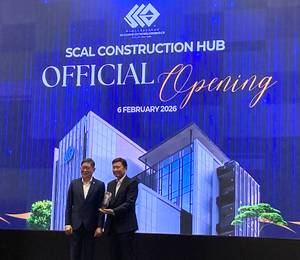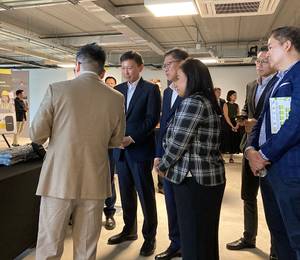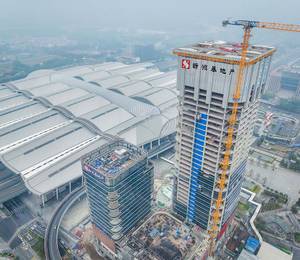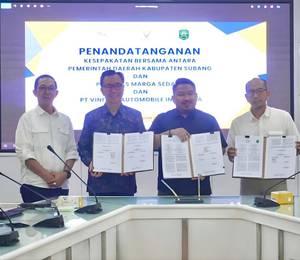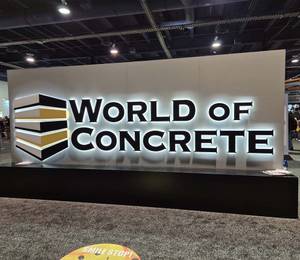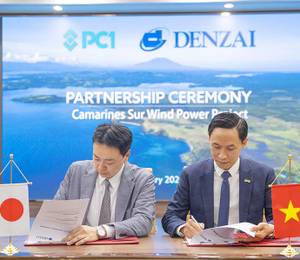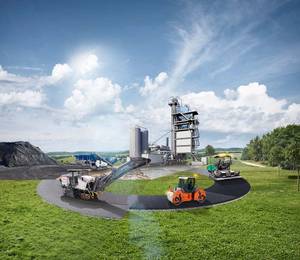The California, US-based global provider of construction management software, Procore Technologies, has released its construction industry benchmark report ‘How We Build Now 2022 – Tracking Technology in Asia Pacific Construction in 2022’.
Spanning five markets in Asia Pacific and gathering insights from more than 1,100 respondents within the construction industry, the report examines the general sentiment of the industry, the digital maturity and adoption of construction technologies, as well as the challenges and opportunities that businesses face.
The research was conducted by independent research company YouGov. A total of 1,138 construction decision-makers and influencers were surveyed across Australia (314), Malaysia (223), New Zealand (114), Philippines (259), and Singapore (228).
In the Philippines, the construction industry continues to face significant headwinds, with top challenges cited being the increasing cost of raw materials and equipment (58%), maintaining safe working environments (44%), and increasing productivity (40%).
However, almost all (98%) respondents in the Philippines express confidence about industry conditions over the next 12 months, with an overwhelming majority also expecting an increase in the number (80%) or value (75%) of projects over the same timeframe.
In Singapore, half of (50%) respondents agree that the pandemic accelerated their investment in digital transformation. Most of (93%) respondents also express confidence about industry conditions over the next 12 months, with around half of construction businesses expecting an increase in the number or value of projects over the same timeframe (49% and 50% respectively).
The top challenges in Singapore include dealing with the increasing cost of raw materials and equipment (54%), keeping up to date with new building and construction technology (38%), staff management (35%), and the lack of certainty and visibility on the potential pipeline of future work (35%).
“Against persistent headwinds in the construction sector globally, Singapore construction decision makers remain resilient and continue to display strong confidence and optimism in the upcoming months,” said Bruce Wells, vice president of Asia at Procore Technologies.
“This optimism is telling of the strategies that the Singapore construction industry has adopted. Our report serves as a benchmark for the overall industry to see where the gaps are, and how their peers are accelerating their digital transformation journey to support business growth.”
Digital transformation necessary
Construction firms in the Philippines understand that digital transformation is required to overcome the challenges, with 26% of businesses already being digital-first and 56% being ‘well on the way’ in their digital transformation journey. In fact, two in three (65%) construction decision makers report an increase in their digital investments during the last 24 months.
Further research from Procore finds that Filipino respondents recognise the benefits of construction technology, in particular the reduced reliance on human labour (55%), the ability to handle more projects (54%), and resource efficiency through less rework (53%).
However, the digital transformation journey is not without obstacles. Among those who expect challenges, the top barriers of digital transformation are changing established behaviours (44%) and overcoming concerns around data security (43%) – followed by the costs involved to transform digitally, inadequate software solutions, and a lack of support from technology providers and vendors (38% each). More than one in three respondents (36%) also cite the challenge of breaking information and people out of ‘silos’.
“A key issue with construction technology lies with a history of it being built by tech people, not construction people. This creates a mismatch of expectations between what businesses want technology to do, and what it can actually do,” explained Mr Wells.
“As a cloud-based software provider created by construction professionals for construction professionals, Procore is rooted and solely dedicated to the advancement of the industry. Procore understands the pain points that the industry faces, and we build solutions to directly address them.”
Likewise in Singapore, construction firms understand that digital transformation is required to overcome labour shortage, with 61% of businesses being ‘well on the way’ in their digital transformation journey – higher than the APAC average of 58%.
As part of their digital transformation roadmap, two in three construction businesses in Singapore cite upskilling staff with soft skills, technological skills and trade skills as a strategy to improve both productivity and profitability; while around one in two construction businesses believe that improving access to project information will do the same.
Interestingly, based on Procore’s research, paper remains a common medium for Singaporean construction decision makers for estimating and pricing processes (39%), environment records (38%) and site activity records (36%).
However, more than half of construction firms (54%) in Singapore agree that they need support from the government to continue on their digital transformation journey. Construction decision makers also cite lack of support from technology providers and vendors (39%) and changing established practices and behaviours (38%) as key barriers for digital transformation.
The future of construction technology
Across the Asia Pacific region, Procore’s research finds that Philippines is a frontrunner on the digital maturity curve – with above average adoption rates for technologies from Internet of Things (IoT) (47%) to drones (43%), telematics/asset-tracking (42%) to big data analytics (41%).
Filipino construction decision makers expect technologies such as digital project management platforms (48%), big data analytics and pre-fabrication (46% each), telematics/asset-tracking (40%) and traditional BIM (40%), to drive change in the next three years.
The top technologies that construction businesses in the Philippines are planning to introduce within the next three years include next generation BIM (65%), pre-fabrication (63%), and robotics (61%). More than half of respondents further display strong intentions to introduce cutting edge technologies such as artificial intelligence and machine learning (59%), extended reality (58%), and big data analytics (55%).
Meanwhile, Singapore is also ahead on the digital maturity curve – with above average adoption rates for the majority of technologies from BIM to pre-fabrication, extended reality (XR) to artificial intelligence and machine learning (AI/ML).
Construction decision makers in Singapore expect technologies such as big data analytics (45%) and pre-fabrication (43%) to drive change in the next three years. To that end, 65% of respondents plan to introduce big data solutions in the next three years, while 55% plan to do the same for pre-fabrication technologies.
In addition, Singapore respondents display strong intentions to introduce cutting edge technologies within the next three years, such as 3D printing (61%), drones (57%), and robotics (57%).
Data as a competitive difference
According to Procore’s research, construction business decision makers in the Philippines unanimously (99%) believe that more efficient data management is a way forward for their business. The most common benefits of efficient data management include improved visibility of project information (53%), enhanced security (52%), improved employee experience and helping to achieve sustainability goals (47% each), followed by ensuring safer working environments, improved decision making and increased productivity (46% each).
Filipino respondents are also the most optimistic of the impact of efficient data management on potential savings – estimating potential savings of 27% on average on total project spend (seven points higher than the Asia Pacific average).
But despite understanding the benefits of efficient data management, the use of paper remains common in managing data. Across all stages of the construction project lifecycle, on average 36% of construction businesses in the Philippines continue to use paper-based records, and are most likely to use paper to track and manage environment records (42%), as well as for estimating and pricing processes, managing site activity, equipment, and asset records (37% each).
In Singapore, construction businesses recognise the push for more efficient data management as well, with respondents almost unanimously (99%) believing that it would benefit their business. The most common benefits of efficient data management include improved visibility of project information (48%), enhanced security (43%), improved decision making (42%), and helping to achieve sustainability goals (41%). Singapore builders also expect to save an average of 18% on total project spend just by managing data more efficiently.
“Across APAC, we can see that the construction industry recognises the opportunity to leverage the massive amounts of data generated through the use of technology to make more data-driven decisions across every phase of the construction life cycle,” said Mr Wells.
“Data plays a mission critical role in providing real-time visibility and insight into all aspects of project performance, and helps firms stay ahead of compliance, reduce rework and keep everyone accountable. Ultimately, smarter construction empowers construction businesses to have better control of their projects and deliver higher quality builds.”
Download the ‘How We Build Now – Tracking technology in Asia Pacific Construction in 2022’ report here.
All images: Procore

